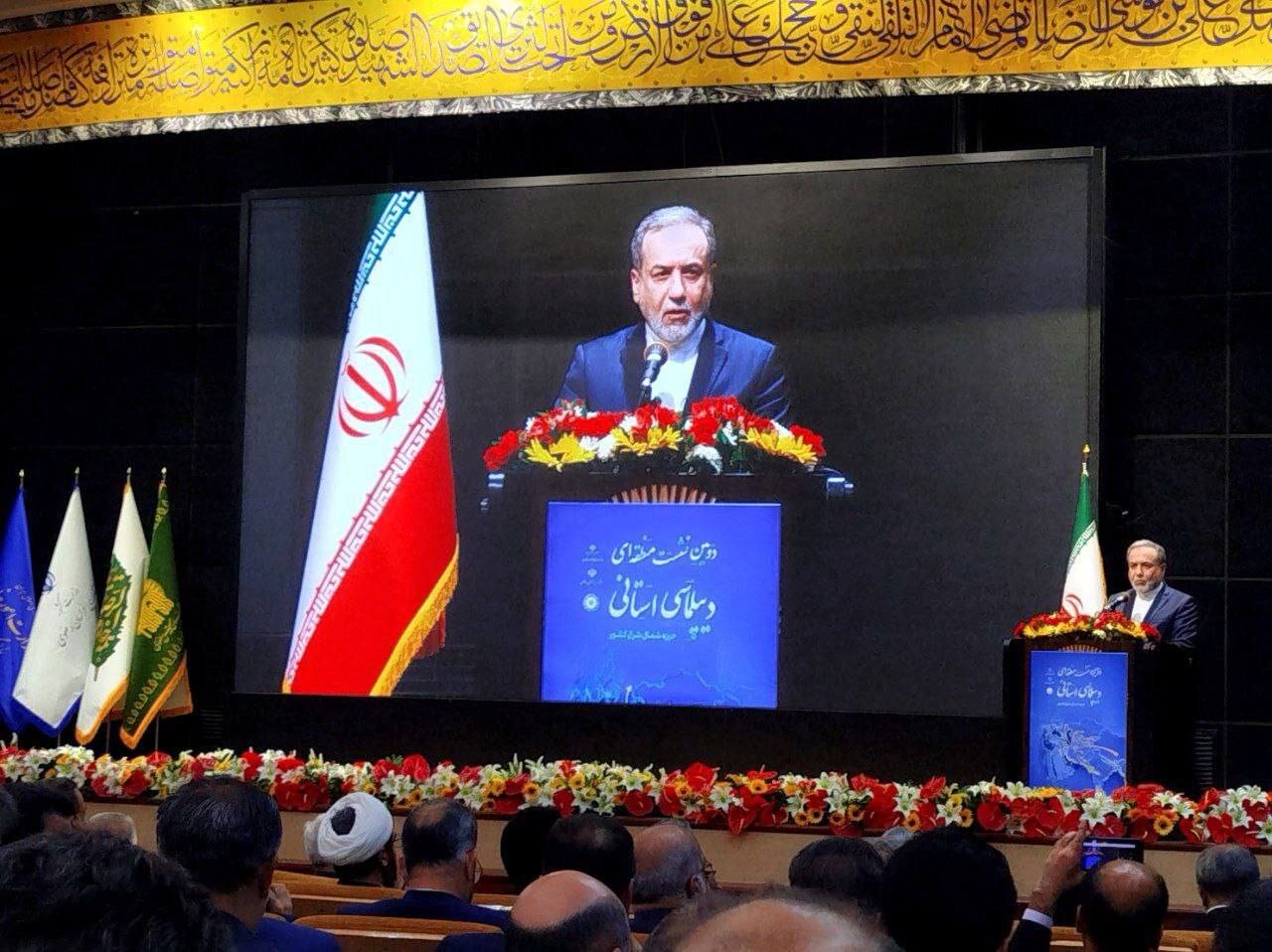Opportunities for diplomacy thwarted by U.S. demands: Araghchi

TEHRAN – Iran’s Foreign Minister Abbas Araghchi has emphasized Tehran’s continued commitment to diplomacy despite repeated setbacks caused by “excessive demands” from the United States.
Speaking upon his arrival to Mashhad city for participation in the second Regional Conference on Provincial Diplomacy on Wednesday, Araghchi stressed that while opportunities for an agreement have arisen, Washington’s uncompromising stance has repeatedly derailed progress.
"There was an opportunity for an agreement, but the United States’ excessive demands prevented it," he said. Araghchi added that recent contact had been made through intermediaries by U.S. negotiator Wittkoff, but he underscored that Iran’s position remains firm.
"The Islamic Republic of Iran is a nation of peace and diplomacy. We have always demonstrated our commitment to dialogue, but that does not mean we will compromise on the rights of the Iranian people," Araghchi stated. He further emphasized that Iran will pursue diplomatic avenues wherever its national interests can be safeguarded.
"However, the other side has repeatedly shown that it does not adhere to diplomatic principles," he said. According to Araghchi, this year alone, after five rounds of indirect negotiations, the United States effectively joined Israel’s military attacks against Iran, further complicating any potential agreement. A subsequent opportunity for progress during talks in New York also faltered due to Washington’s “excessive demands.”
Following his arrival, Araghchi participated in the second Regional Conference on Provincial Diplomacy, held in Mashhad and also attended by the Speaker of the Parliament. Addressing the conference, he highlighted the importance of regional economic partnerships.
"Neighboring countries enable Iran to breathe under sanctions," Araghchi said. He noted that Iran exports more to a single neighboring country than it does to the entire European continent, underscoring the strategic importance of regional cooperation in sustaining the Iranian economy.
Speaker of the Iranian Parliament Mohammad Baqer Qalibaf also addressed the conference, highlighting Iran’s evolving foreign policy strategy.
"Iran can align itself with China and Russia in confronting unilateralism," he said, adding that nations around the world will no longer bow to American monopoly. Qalibaf pointed to the opposition of two permanent UN Security Council members—China and Russia—to the so-called snapback mechanism as evidence of a new global order emerging, in which unilateral actions by the West are increasingly challenged.
He further noted that Iran now shares a common understanding with its neighboring countries and strategic partners on regional issues. "Synergy will grow through the expansion of provincial diplomacy. Today, more than ever, we must think ahead and create opportunities for the Iranian nation," Qalibaf said.
These statements come amid heightened tensions following recent moves by Western powers. In late August, the UK, France, and Germany triggered the so-called snapback mechanism at the UN, effectively reimposing sanctions that had been lifted under the 2015 nuclear agreement. Tehran has rejected this move as unlawful, citing Washington’s withdrawal from the deal and Europe’s subsequent failure to uphold its commitments as the root cause of the current standoff.
Efforts by Russia and China to secure additional time for diplomacy at the UN Security Council in September were unsuccessful, clearing the way for the Western push. On September 29, the European Council announced that sanctions previously lifted under the 2015 deal had been reinstated.
Complicating matters further, Israel launched a large-scale military attack against Iran on June 13, targeting nuclear scientists, high-ranking military officials, and civilians. The United States followed by bombing three Iranian nuclear sites, disrupting indirect talks between Tehran and Washington on Iran’s peaceful nuclear program.
A sixth round of talks, mediated by Oman and scheduled in Muscat on June 15, was called off due to the escalation of Israeli attacks. Iran has maintained limited contacts with the United States through Egypt’s mediation, particularly regarding developments in Gaza, but Araghchi and other Iranian officials emphasized that direct negotiations remain impossible under current circumstances.
Iranian Foreign Ministry spokesman Esmaeil Baghaei told reporters on Monday, "Negotiations make sense when the parties reach a consensus and a mutual understanding about respect for each other's rights and concerns, and engage in dialogue on equal footing. Currently, such conditions do not exist." He stressed that no groundwork for meaningful negotiations can be laid as long as “excessive demands and expectations” persist from the other side.
Leave a Comment